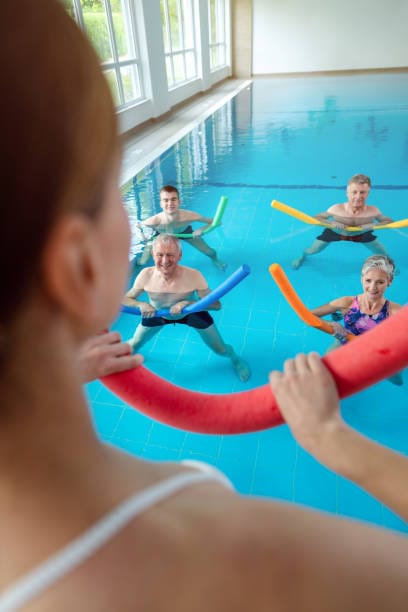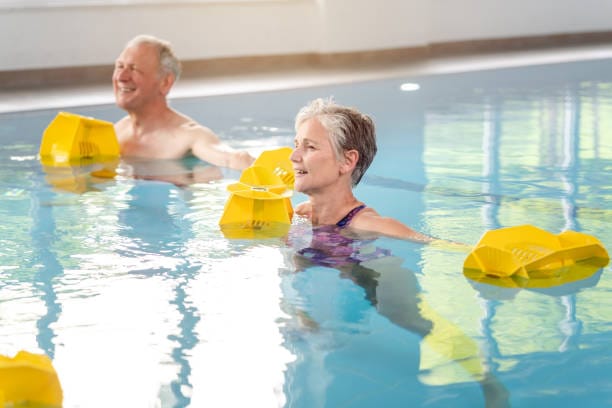The Healing Power of Hydrotherapy in Physiotherapy
Hydrotherapy, often referred to as water therapy, harnesses the therapeutic properties of water to promote healing and enhance well-being. From ancient times to modern practices, hydrotherapy has been recognized for its numerous health benefits across various cultures. Here’s a comprehensive guide to understanding and incorporating hydrotherapy into your wellness routine:
What is Hydrotherapy?
Hydrotherapy involves the use of water at different temperatures and states (liquid, steam, or ice) to promote health and healing. Physiotherapists utilize hydrotherapy to reduce pain, enhance mobility, and accelerate recovery from injuries.
Key Benefits of Hydrotherapy
- Pain Relief and Relaxation
- Warm water helps to relax muscles and reduce pain by increasing blood flow and decreasing muscle spasms.
- The buoyancy of water reduces the weight-bearing load on joints, providing relief from conditions like arthritis.
- Improved Mobility and Flexibility
- Water resistance helps improve muscle strength and joint flexibility without the stress that land-based exercises can impose.
- It allows for a greater range of motion, making it easier to perform stretches and movements that might be painful on land.
- Enhanced Circulation
- Hydrostatic pressure, the force exerted by water on the body, improves circulation and reduces swelling, aiding in the recovery of injured tissues.
- Support for Rehabilitation
- Water’s buoyancy supports body weight, reducing stress on joints and making it ideal for post-surgery rehabilitation or chronic conditions like fibromyalgia.
- It allows for the gradual reintroduction of weight-bearing activities.
- Mental Health Benefits
- The soothing properties of water help reduce stress and anxiety, improving overall mental well-being and supporting holistic recovery.


At our clinic, we focus mainly on Aquatic Exercises. Each session is conducted in a pool, and these exercises use water resistance to enhance strength, flexibility, and endurance. Common activities include water walking, gentle jogging, and specific physiotherapy exercises tailored to the individual’s needs.

Precautions and Considerations
Medical Conditions: Individuals with certain medical conditions, such as pregnancy, cardiovascular issues, open wounds, or infections, should consult with a healthcare provider before undergoing hydrotherapy.
Temperature Sensitivity: Those who are sensitive to extreme temperatures should ensure the water temperature is comfortable and safe for their condition.
Supervision: Always perform hydrotherapy exercises under the guidance of a trained physiotherapist to avoid any risks and ensure exercises are done correctly.
Incorporating Hydrotherapy into Your Treatment Plan
- Personalized Programs: Work with a physiotherapist to develop a hydrotherapy program tailored to your specific needs and conditions.
- Consistency: Regular sessions can help achieve the best results, so aim for a consistent schedule as recommended by your physiotherapist.
- Complementary Treatments: Combine hydrotherapy with other physiotherapy treatments, such as manual therapy or dry land exercises, for a comprehensive approach to rehabilitation.
Hydrotherapy is a powerful tool in physiotherapy, offering numerous benefits from pain relief and improved mobility to enhanced mental health. By utilizing the unique properties of water, hydrotherapy can accelerate recovery and support long-term health and wellness. Always seek professional advice to ensure the most effective and safe application of hydrotherapy in your treatment plan.
For more information about the Prince George Aquatic Centre and Canfor Leisure Pool,click the link below for more information (accessibility, hours, fees etc.)
